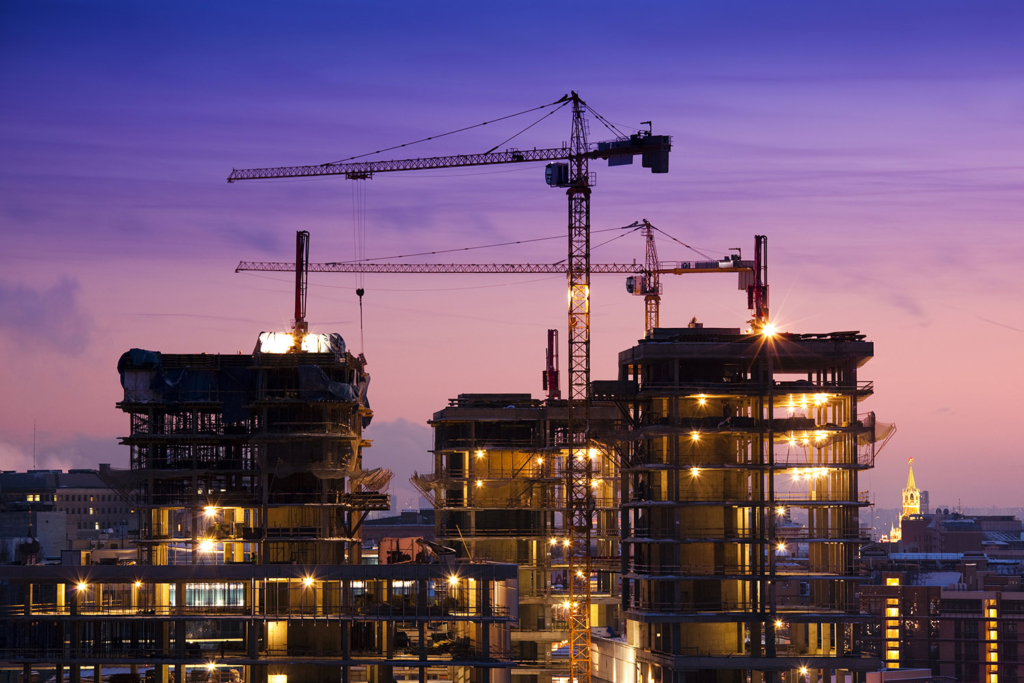In the construction world, it’s crucial to distinguish between the unique requirements of multi-residential, commercial, and industrial projects. Each type presents distinct challenges and demands a specialized approach to ensure success. Let’s delve into the key differences to better navigate the complexities of each construction type.
Purpose and Focus
• Industrial: Efficiency and functionality are paramount. These buildings are optimized for manufacturing, storage, or other industrial activities, prioritizing operational productivity.
• Commercial: Designed to facilitate business operations and customer interactions, commercial spaces need to balance functionality with an inviting environment to attract and retain customers.
• Multi-Residential: The focus is on creating high-quality living spaces that combine comfort, livability, and aesthetics with efficient use of space. Multi-residential projects, such as apartment buildings, must cater to a broad range of occupants, ensuring both functionality and an appealing living environment.
Scale and Technical Requirements
• Industrial: Typically the largest and most complex, industrial projects require specialized equipment and systems unique to the industry.
• Commercial: Commercial projects vary in size and range from retail stores to office complexes, each with specific requirements depending on the commercial activity.
• Multi-Residential: These projects involve constructing large-scale apartment buildings or complexes, often in urban settings. They require careful planning to maximize space and amenities for residents while adhering to strict building codes and regulations.

Materials and Construction Methods
• Industrial: Uses materials like steel and concrete for strength and durability, focusing on creating robust structures that can support heavy machinery.
• Commercial: A mix of steel, concrete, and glass is common, balancing durability with aesthetic appeal in functional yet attractive spaces.
• Multi-Residential: Construction materials are selected to provide durability, safety, and comfort. Common materials include reinforced concrete, steel for structural elements, and high-quality finishes to create appealing living spaces.
Collaborative Design Approach
• Industrial: Engineers and industry experts collaborate closely to ensure facilities meet operational requirements. The design process is highly technical and function-driven.
• Commercial: Architects, engineers, and business consultants work together to create spaces that meet both functional and aesthetic needs.
• Multi-Residential: Architects collaborate with interior designers and urban planners to create cohesive, community-oriented living spaces. The design must consider not only the individual apartments but also common areas, parking facilities, and green spaces.
Infrastructure Complexity
• Industrial: These projects have complex infrastructure needs, including specialized electrical, plumbing, and IT systems, sometimes requiring on-site power generation.
• Commercial: Commercial buildings require significant infrastructure, particularly in technology and customer comfort.
• Multi-Residential: Multi-residential buildings require robust infrastructure to support the needs of many residents. This includes efficient plumbing, electrical systems, elevators, and fire safety measures, as well as amenities like gyms or communal lounges.
Compliance and Regulation
• Industrial: Strict regulations focus on safety and environmental impact, making compliance critical throughout the project.
• Commercial: Regulatory requirements are significant, especially in public safety and accessibility, often requiring adherence to local and national standards.
• Multi-Residential: Multi-residential projects must adhere to stringent building codes that govern everything from fire safety to accessibility. These regulations are essential for ensuring the safety and comfort of all residents.
Each construction type—multi-residential, commercial, and industrial—requires a tailored approach. Understanding these differences is key to successful project planning and execution.
With over 15 years of experience across all three sectors, Buildland is here to deliver exceptional results. Call us on 02 7966 0200 or email info@buildland.au to discuss your next project.
 02 7966 0200
02 7966 0200 info@buildland.au
info@buildland.au